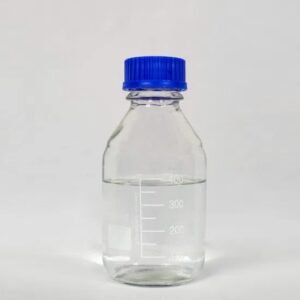IMARC Group’s report titled “Dibutyl Sebacate Manufacturing Plant Project Report 2024: Industry Trends, Plant Setup, Machinery, Raw Materials, Investment Opportunities, Cost and Revenue” provides a comprehensive guide for establishing a dibutyl sebacate manufacturing plant. The report covers various aspects, ranging from a broad market overview to intricate details like unit operations, raw material and utility requirements, infrastructure necessities, machinery requirements, manpower needs, packaging and transportation requirements, and more.
In addition to the operational aspects, the report also provides in-depth insights into dibutyl sebacate manufacturing process, project economics, encompassing vital aspects such as capital investments, project funding, operating expenses, income and expenditure projections, fixed and variable costs, direct and indirect expenses, expected ROI, net present value (NPV), profit and loss account, and thorough financial analysis, among other crucial metrics. With this comprehensive roadmap, entrepreneurs and stakeholders can make informed decisions and venture into a successful dibutyl sebacate manufacturing unit.
Customization Available:
- Plant Location
- Plant Capacity
- Machinery- Automatic/ Semi-automatic/ Manual
- List of Machinery Provider

Dibutyl sebacate (DBS) is a versatile chemical compound widely used as a plasticizer in various industries, including cosmetics, pharmaceuticals, and plastics manufacturing. Known for its ability to impart flexibility and durability to polymers, DBS is particularly valued in the production of cellulose acetate films, which are used in food packaging and medical devices due to their non-toxicity and stability. Its chemical structure, consisting of a sebacic acid backbone and two butyl groups, enables DBS to efficiently blend with polymers without compromising their mechanical properties, making it a preferred choice for applications requiring high-performance materials.
Request for a Sample Report: https://www.imarcgroup.com/dibutyl-sebacate-manufacturing-plant-project-report/requestsample
In recent market trends, Dibutyl sebacate has seen increasing demand driven by the growing preference for sustainable and eco-friendly plasticizers. Manufacturers are shifting towards DBS due to its biodegradability and low toxicity compared to traditional phthalate-based plasticizers, aligning with regulatory pressures and consumer preferences for safer and more environmentally responsible products. Moreover, the versatility of DBS extends beyond its role as a plasticizer, finding applications in personal care products like lotions and creams, where it acts as an emollient and solvent. As industries continue to prioritize sustainability and regulatory compliance, Dibutyl sebacate is poised to witness sustained growth and innovation across various sectors.
Key Insights Covered the Dibutyl Sebacate Plant Report
Market Coverage:
- Market Trends
- Market Breakup by Segment
- Market Breakup by Region
- Price Analysis
- Impact of COVID-19
- Market Forecast
Detailed Process Flow:
- Product Overview
- Unit Operations Involved
- Mass Balance and Raw Material Requirements
- Quality Assurance Criteria
- Technical Tests
- Land, Location and Site Development
- Plant Layout
- Machinery Requirements and Costs
- Raw Material Requirements and Costs
- Packaging Requirements and Costs
- Transportation Requirements and Costs
- Utility Requirements and Costs
- Human Resource Requirements and Costs
- Capital Investments
- Operating Costs
- Expenditure Projections
- Revenue Projections
- Taxation and Depreciation
- Profit Projections
- Financial Analysis
Key Questions Addressed in This Report:
- How has the dibutyl sebacate market performed so far and how will it perform in the coming years?
- What is the market segmentation of the global dibutyl sebacate market?
- What is the regional breakup of the global dibutyl sebacate market?
- What are the price trends of various feedstocks in the dibutyl sebacate industry?
- What is the structure of the dibutyl sebacate industry and who are the key players?
- What are the various unit operations involved in a dibutyl sebacate manufacturing plant?
- What is the total size of land required for setting up a dibutyl sebacate manufacturing plant?
- What is the layout of a dibutyl sebacate manufacturing plant?
- What are the machinery requirements for setting up a dibutyl sebacate manufacturing plant?
- What are the raw material requirements for setting up a dibutyl sebacate manufacturing plant?
- What are the packaging requirements for setting up a dibutyl sebacate manufacturing plant?
- What are the transportation requirements for setting up a dibutyl sebacate manufacturing plant?
- What are the utility requirements for setting up a dibutyl sebacate manufacturing plant?
- What are the human resource requirements for setting up a dibutyl sebacate manufacturing plant?
- What are the infrastructure costs for setting up a dibutyl sebacate manufacturing plant?
- What are the capital costs for setting up a dibutyl sebacate manufacturing plant?
- What are the operating costs for setting up a dibutyl sebacate manufacturing plant?
- What should be the pricing mechanism of the final product?
- What will be the income and expenditures for a dibutyl sebacate manufacturing plant?
- What is the time required to break even?
- What are the profit projections for setting up a dibutyl sebacate manufacturing plant?
- What are the key success and risk factors in the dibutyl sebacate industry?
- What are the key regulatory procedures and requirements for setting up a dibutyl sebacate manufacturing plant?
- What are the key certifications required for setting up a dibutyl sebacate manufacturing plant?
IMARC Group is a leading market research company that offers management strategy and market research worldwide. We partner with clients in all sectors and regions to identify their highest-value opportunities, address their most critical challenges, and transform their businesses.
IMARC Group’s information products include major market, scientific, economic and technological developments for business leaders in pharmaceutical, industrial, and high technology organizations. Market forecasts and industry analysis for biotechnology, advanced materials, pharmaceuticals, food and beverage, travel and tourism, nanotechnology and novel processing methods are at the top of the company’s expertise.
Contact Us:
IMARC Group
134 N 4th St. Brooklyn, NY 11249, USA
Email: [email protected]
Tel No:(D) +91 120 433 0800
United States: +1-631-791-1145 | United Kingdom: +44-753-713-2163